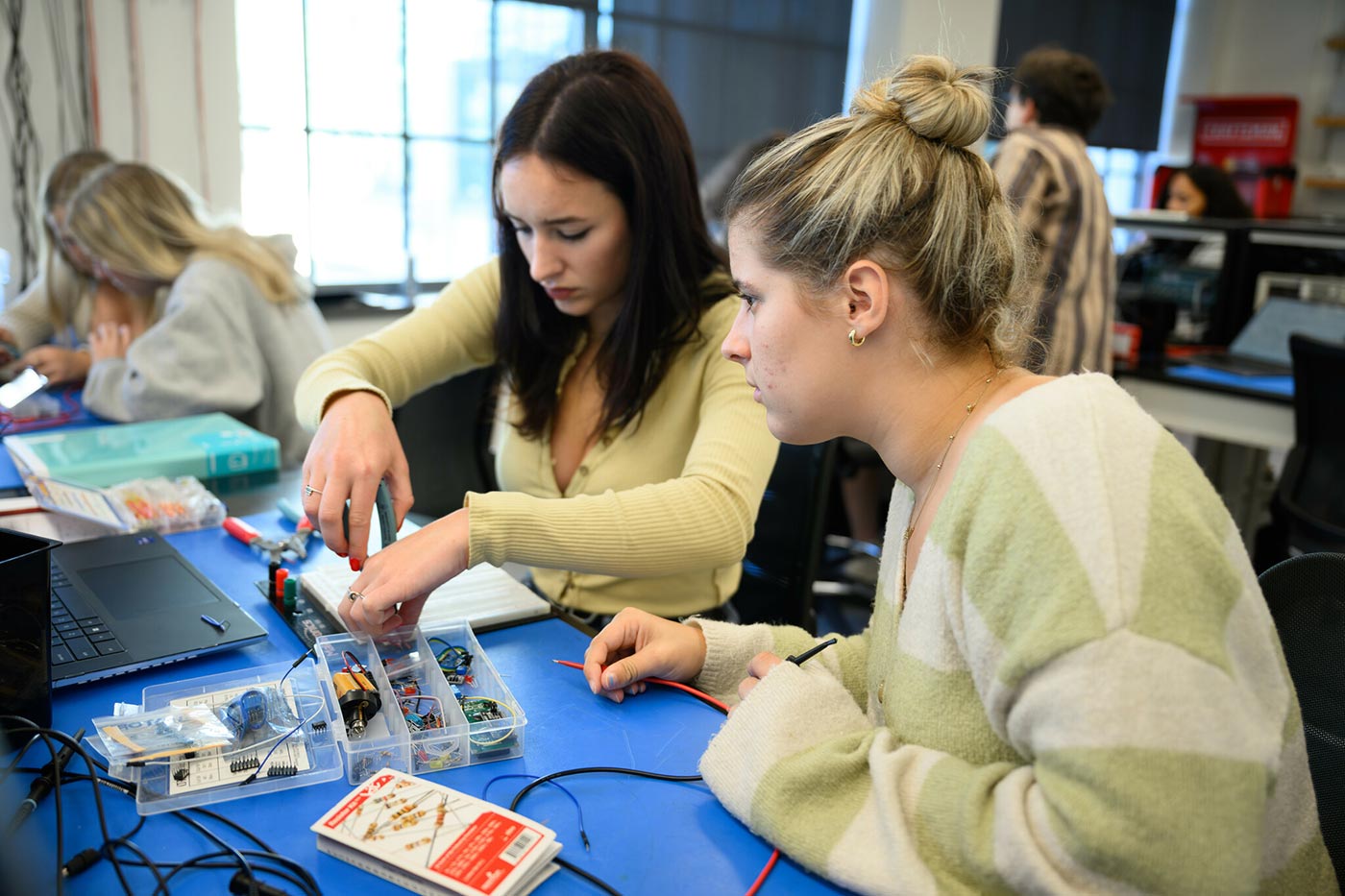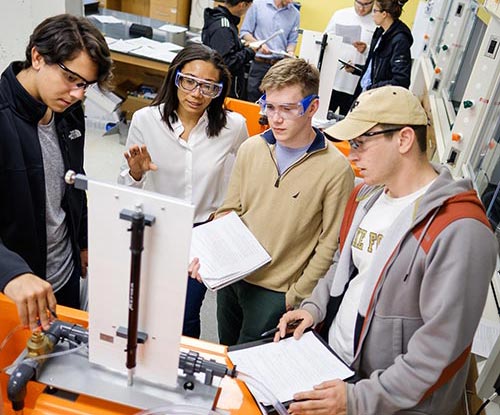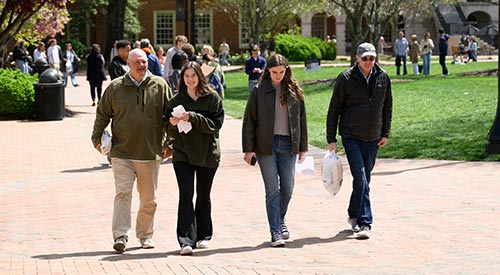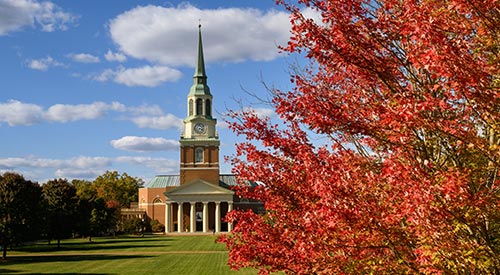Engineering

Engineering Degree
Bachelor of Science, Minor
Program Type:
Major, Minor
Career Path:
STEM (Engineering)
Program Site:
College or School:
Why study Engineering?
Whether it’s prototyping or refining a product, creating a smarter financial investing model, designing more resilient infrastructure, inventing a piece of surgical equipment, or consulting on a sustainable energy project, WFU engineers deploy a vast skill set and are committed to inventing and innovating systems, processes, and materials. Infused with a healthy and productive liberal arts component, the Engineering program at Wake Forest transcends science and math to produce benefits for humanity.
- In the five graduating classes of the Engineering program, 42% of the graduates have been women. Nationally, women represent 26% of Engineering graduates over the past three years for which data are available (2021-23).
- The program celebrated its first graduating class in 2021 and earned full national certification on time in August 2022.
- Senior capstone projects presented in 2025 included an initiative to help patients mitigate loss of muscle mass while hospitalized; drone-based sensing of wildfires and related hazardous environments; innovative lighting techniques to improve bicycle rider safety; an innovation that sorts pills and helps patients take the proper amounts of each medication every day; improving the effectiveness of pediatric heart valves; and generating medical waste into usable plastic products.
- Women represent the majority of tenured and tenure-tracked faculty. The national average is approximately 16%.
The Engineering degree is offered as a Bachelor of Science (B.S.) and a minor.
What classes would I take?
Our model and curriculum educate the whole person and often help students discover interests they had never previously discovered. Students generally take 100-200 level courses during their first year of college, while registering for higher level courses as upperclassmen.
Sample courses* that you may take as a Engineering student include:
100-200 level
- Introduction to Engineering Design
- Materials and Mechanics
- Transport Phenomena
- Mechanical Computer Aided Design
- Digital Electronics
300 level
- Control Systems and Instrumentation
- Computational Modeling in Engineering
- Renewable Energy Systems
- Biomimetic Engineering
- Environmental Engineering
* Course availability and offerings can change at any time. Refer to the Academic Bulletin to view all major requirements.
What kind of experience will I gain?
Each Wake Forest Engineering Major receives a tailored program of study. This program is developed in consultation with faculty, a major advisor, and program leaders. Students may pursue a concentration in Biomedical, Civil & Environmental, Electrical, Materials & Chemical, or Mechanical Engineering.
Students develop impactful and relevant skills to:
- Solve complex problems
- Create systems-based efficiencies
- Create novel products and solutions
- Envision ways to conserve and optimize resources
- Collaborate with a team to reach defined goals and objectives
Students in this program will develop the following skills:
- Design process
- Programming
- Computer-aided design (CAD)
- 3D printing
- Teamwork
- Creativity
- Communication
- Attention to detail
- Prototyping
- Data analysis
- Systems modeling
- Presentation skills
- Leadership
Are there extracurricular activities?
Joining a club or organization is a great way to get involved and do more with your major. Our Engineering students participate in the following programs:
- STEM Academy
- Society of Women Engineers
- Robotics Club
What kind of job can I get?
Careers that often interest Engineering majors, and fields our graduates work in, include:
- Biochemical or Biomedical Engineers
- Chemical Engineers
- Civil Engineers
- Electrical Engineers
- Energy
- Healthcare
- Industrial Engineers
- Manufacturing Engineers
- Materials Engineers
- Mechanical Engineers
- Nanosystems Engineers
- Nuclear Engineers
- Renewable Energy Engineers
- Robotics Engineers
Graduates in the inaugural cohort of 2021 are working as cloud solutions engineers; research and development engineers in pharmaceuticals; healthcare analysts; supply-chain engineers; and portfolio managers, among other careers.
Related Programs

Majors & Minors
Choose from more than 50 majors and over 60 minors to find your perfect fit.

Life at Wake
Take a moment to explore all the student experiences that make Wake Forest unique.

Virtual Tour
Can’t make it for a visit? No problem! Let us show you around campus virtually.

Keep in Touch
Let us know you’re interested in Wake Forest and we’ll do the rest.

Visit Campus
You truly can’t appreciate the beauty of our campus until you experience it for yourself.

Apply
Want to be considered for our next class of Demon Deacons? Here’s how to get started.
